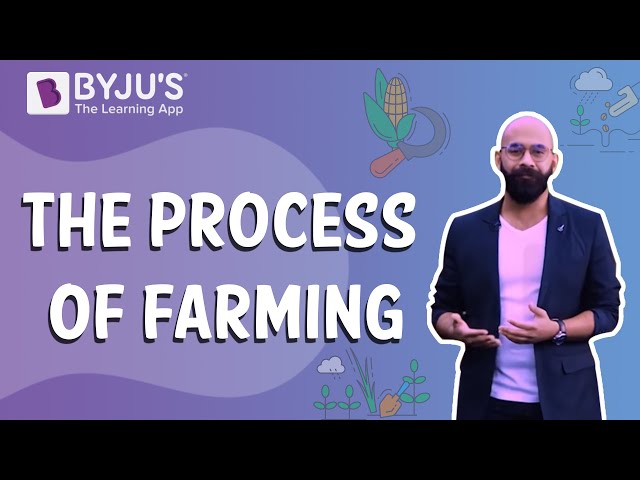Mention the difference between primitive and intensive subsistence farming
Mention the difference between primitive and intensive subsistence farming
Agriculture is the name of this practice of crop cultivation. Agriculture is the art of growing food and cash crops for the basic requirement for every living being. Agriculture is one of the world’s most widespread practises and is primarily dependent on the condition of the land, the climatic characteristics and the irrigation services available. This is practiced through a series of phases. In earlier days they used to cultivate in a very small field by using certain procedures for their management and improvement but today the agricultural practices and technologies are advancing very swiftly as it includes a set of procedures to be followed to raise crops.
Subsistence farming
The type of farming is practised to meet the needs of the farmer’s family. Subsistence farming isclassified as intensive subsistence and primitive subsistence farming. Subsistence farming and Commercial farming are the main types of farming depending upon the geographical conditions, demand of produce, labor, and level of technology.
Difference between Primitive Subsistence Farming and Intensive subsistence farming
Primitive Subsistence Farming
Intensive subsistence farming
It is one of the earliest farming methods to be trained because it utilises primitive tools and is carried out on a small-scale.
In thus type of farming, the farmer cultivates a small plot of land using simple tools and more labour.
Primitive subsistence farming is only sufficient to feed the farmer and their family
This type of farming is used to sell the crops and gain profit.
Maize, yam, potatoes and cassava are he crops grown in this type of farming
Rice,Wheat, maize, pulses and oilseeds are the crops grown in this type of farming
This type of farming is prominent in the thickly populated areas of the monsoon regions of the south, southeast and east Asia.
This type of farming is prominent in the thickly forested areas of Amazon basin, tropical Africa, parts of Southeast Asia and Northeast India.
Check out the video given below to know more about farming

Articles to explore
Agriculture is the name of this practice of crop cultivation. Agriculture is the art of growing food and cash crops for the basic requirement for every living being. Agriculture is one of the world’s most widespread practises and is primarily dependent on the condition of the land, the climatic characteristics and the irrigation services available. This is practiced through a series of phases. In earlier days they used to cultivate in a very small field by using certain procedures for their management and improvement but today the agricultural practices and technologies are advancing very swiftly as it includes a set of procedures to be followed to raise crops.
Subsistence farming
The type of farming is practised to meet the needs of the farmer’s family. Subsistence farming isclassified as intensive subsistence and primitive subsistence farming. Subsistence farming and Commercial farming are the main types of farming depending upon the geographical conditions, demand of produce, labor, and level of technology.
Difference between Primitive Subsistence Farming and Intensive subsistence farming
| Primitive Subsistence Farming | Intensive subsistence farming |
| It is one of the earliest farming methods to be trained because it utilises primitive tools and is carried out on a small-scale. | In thus type of farming, the farmer cultivates a small plot of land using simple tools and more labour. |
| Primitive subsistence farming is only sufficient to feed the farmer and their family | This type of farming is used to sell the crops and gain profit. |
| Maize, yam, potatoes and cassava are he crops grown in this type of farming | Rice,Wheat, maize, pulses and oilseeds are the crops grown in this type of farming |
| This type of farming is prominent in the thickly populated areas of the monsoon regions of the south, southeast and east Asia. | This type of farming is prominent in the thickly forested areas of Amazon basin, tropical Africa, parts of Southeast Asia and Northeast India. |
Check out the video given below to know more about farming

Articles to explore
